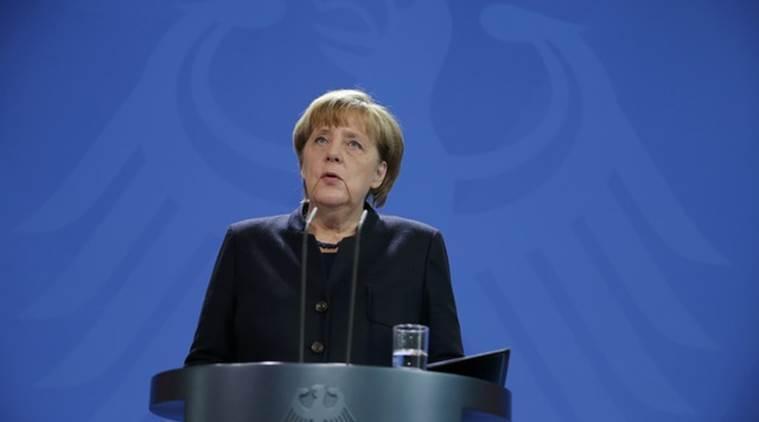
German Chancellor Angela Merkel said Wednesday it would be wrong to cancel the nuclear agreement with Iran, highlighting it as one of her main differences of opinion between Berlin and Washington.
President Donald Trump announced last week the U.S. would pull out of the 2015 accord, which is designed to keep Tehran’s nuclear ambitions in check and took over a decade to negotiate. France and Britain have also pledged to uphold the deal provided Iran keeps up its side of the bargain.
Merkel used her annual budget speech to Parliament to affirm Berlin’s position on the issue, listing the U.S. pullout among several pieces of “troubling news” - along with recent chemical attacks in Syria, violence in Gaza and daily cease-fire breaches in Ukraine.
“This agreement is anything but ideal,” she told lawmakers, but noted that the U.N. nuclear watchdog has confirmed Iran is abiding by its terms.
“That’s why we, Britain, France, Germany but also the members of the European Union, believe it’s not right to cancel this agreement in this situation now,” said Merkel, adding that concerns about Iran’s ballistic missile program and its destabilizing influence in the region could best be discussed with Tehran by preserving the deal.
“Despite all the problems we have these days,” she added, “trans-Atlantic relations are and remain of paramount importance.”
Merkel told lawmakers that Germany’s economy is on a good path and the government plans to increase its spending on defense and scientific research to ensure the country can meet the security challenges of the future and remain a leading industrial power.
During the debate, the co-leader of the far-right Alternative for Germany, Alice Weidel, was reprimanded by speaker Wolfgang Schaeuble for describing Muslim girls who wear headscarves as “useless people.” Her party came third in last year’s elections on an anti-immigrant program and is now the largest opposition party in Parliament.
European Commission President Jean-Claude Juncker also said that all efforts must be made to keep the Iran nuclear agreement alive despite the U.S. pullout because “to end the deal would gravely threaten the peace and security in this tumultuous region.”
Iran, for its part, said on May 16 that that new U.S. sanctions on its central bank governor would only make Iranians “more determined, patient and resistant than ever.”
“We consider this inappropriate policy to be part of the continued unwise behavior and hostile policies of the American government,” said foreign ministry spokesman Bahram Ghasemi in a statement on the ministry website.
On May 15, the U.S. sanctioned Valiollah Seif, the governor of the Central Bank of Iran, accusing him of helping the country’s Revolutionary Guard Corps transfer millions of dollars to Lebanon’s Hezbollah.
Ghasemi said this was an attempt to coerce other countries who have opposed last week’s decision by the US to withdraw from the 2015 nuclear deal with Iran.
“Following the failure and destructive effects of its own mistakes and obvious misconceptions after its unilateral withdrawal from the JCPOA (nuclear deal), the US government is now trying to influence the will and decisions of the remaining members of the JCPOA and other countries in the world,” Ghasemi said. “These venomous policies have had, and will have, no success for America, and have made the government and nation of Iran more determined, patient and resistant than ever to confront the US,” he added.
Since its withdrawal from the nuclear deal last week, the US has announced new sanctions targeting the Revolutionary Guards financial networks.
That has included a currency exchange network, another central bank official, and executives from Iraq’s Al-Bilad Islamic Bank which Washington said provided a link to Hezbollah. “The United States will not permit Iran’s increasingly brazen abuse of the international financial system,” said U.S. Treasury Secretary Steven Mnuchin.
“The global community must remain vigilant against Iran’s deceptive efforts to provide financial support to its terrorist proxies.”